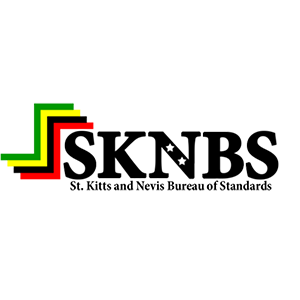Who We Are
Find out more about who we are.
History
The St. Kitts and Nevis Bureau of Standards (SKNBS) was officially established on the 8th day of March 1999 under the National Bureau of Standards Act No. 7 of 1999 now the Bureau of Standards and Quality Act No. 19 of 2021.
It is an Act to provide for the preparation, promotion, and implementation of standards and standard-related activities about commodities, goods, services, processes, and practices by the establishment and operation of a Bureau of Standards; to define the powers and functions of the Bureau of Standards; to provide for transitional provisions, and incidental matters.
Mandate
The Bureau of Standards has the major responsibility of protecting the environment, health, and safety of consumers. Its activities also focus on preparing, promoting, and generally adopting standards on a national basis relating to structures, commodities, materials, articles, and other things offered to the public commercially, hence promoting standardization, quality assurance, and simplification in industry and commerce.
Mission Statement
To deliver the highest quality of service in the areas of metrology, food, water, and environmental testing and monitor compliance to related standards and regulations to foster an improved quality of life for the people of St. Kitts and Nevis.
Vision Statement
To improve safety and quality to foster a culture for continual improvement.
Key Responsibilities
- To develop, promote, and generally adopt standards nationally relating to structures, commodities, materials, articles, and other things offered to the public commercially.
- To prepare, frame, modify, or amend specifications and codes of practice.
- To test precision instruments, gauges, and scientific equipment, for determining the accuracy and the calibration of standards used in industrial and commercial activities.
- To maintain testing laboratories for testing and providing facilities for examining commodities, products, materials, processes, and practices, and in so doing to conduct such research and investigations as may be necessary.
- To act as custodian of the national standards of mass, length, capacity, time, temperature, and electrical measurement.
- To certify those products, commodities, and processes that conform to the national standards.
- To control, by provisions of the Standards Act, the use of standardization marks and distinctive marks.
- To collect and disseminate information on standards and related technical matters, nationally, regionally, and internationally.
- To function as the National Enquiry/Focal Point.
LEGAL DISCLAIMER
This website has been produced with the financial assistance of the European Union. Its contents are the sole responsibility of the St. Kitts and Nevis Bureau of Standards and can under no circumstances be regarded as reflecting the position of the European Union.

Ministry of Trade
The SKNBS is a department under the Ministry of Trade.
Website: https://www.miticca.gov.kn/
Phone Number: 1 (869) 467-1069
Email Address: foreigntrade@gov.kn
RELATED ORGANISATIONS
CARICOM Regional Organisation for Standards and Quality (CROSQ)
Bridgetown, Barbados
International Organization for Standardization (ISO)
Geneva, Switzerland
American Society for Testing and Materials (ASTM)
Pennsylvania, United States
Codex Alimentarius (CODEX)
Rome, Italy
©2023. St. Kitts and Nevis Bureau of Standards. All Rights Reserved.
